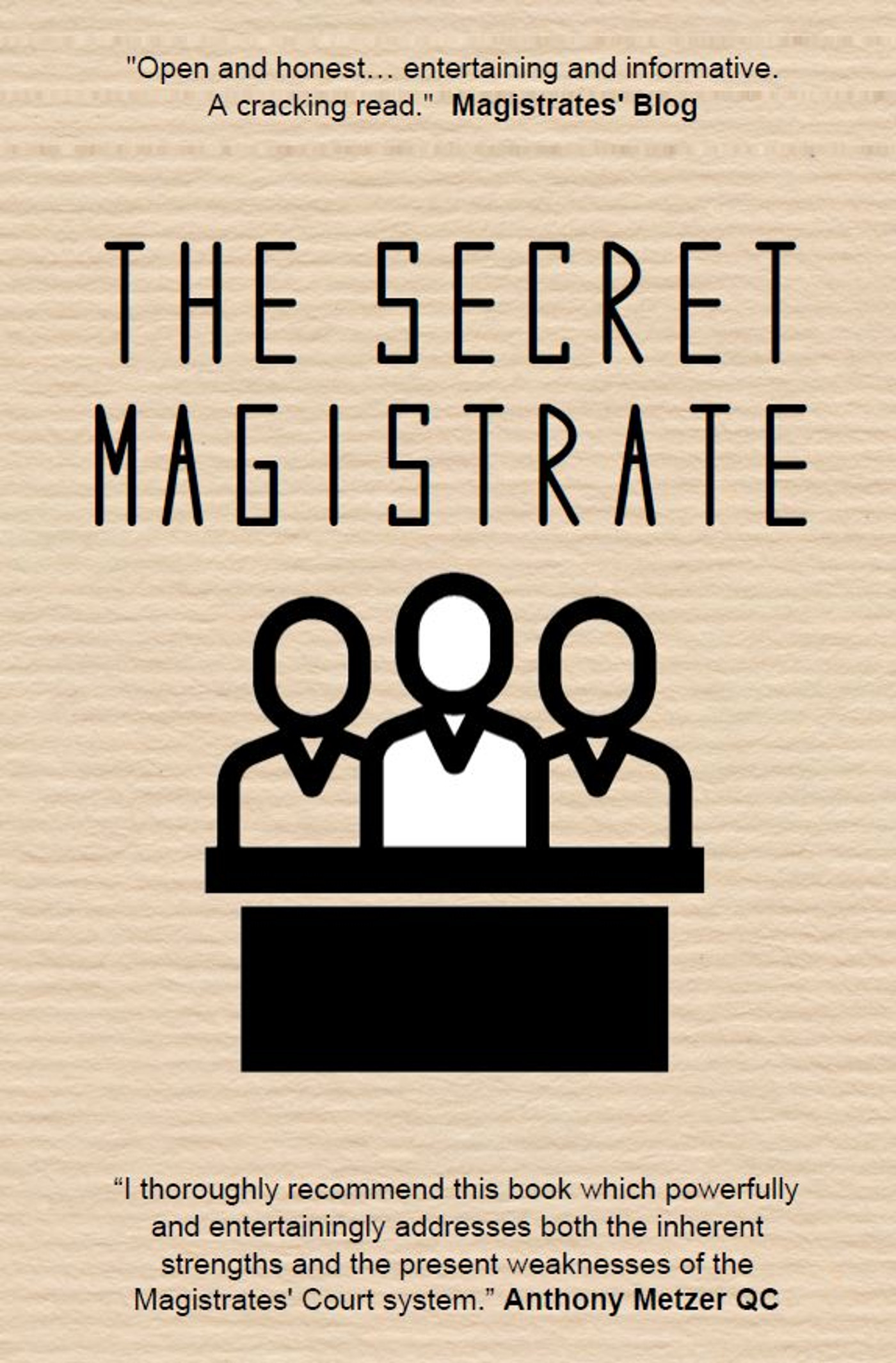The Secret Magistrate on how budget cuts and court closures are affecting the morale of the magistracy
In this guest post The Secret Magistrate author discusses the effect of budget cuts, court closures and court modernisation on volunteers dedicated to the idea of local justice… Continue reading about The Secret Magistrate on how budget cuts and court closures are affecting the morale of the magistracy

I have been a magistrate for several years now. It is a role that I take great pride in and becoming a magistrate is one of the best decisions I have ever made as I feel that I am making a real contribution towards maintaining the rule of law.
The role is challenging and difficult and can be heart-breaking at times, but it is never less than fulfilling and I leave court after every sitting with a sense of satisfaction, although often tinged with frustration because of the issues, problems and delays that are endemic within the CJS.
Taken for granted
It is important to remember that we are unpaid volunteers, so little things mean a lot and go a long way. Poorly maintained buildings, non-functioning toilets and lifts, IT that does not work and – in many courts – the lack of perks such as hot drinks and biscuits (petty though they might seem), do little to boost morale. They make us feel like we are not really valued and are taken for granted by the Ministry of Justice and HMCTS and being a magistrate sometimes seems like suffering death by a thousand cuts with so many little pinpricks affecting our enjoyment of what sometimes can feel like a thankless role.
It is hard to overstate the amount of time lost and wasted almost every day as we wait for something to happen and for court proceedings to commence. COVID has obviously exacerbated the situation and we are also well aware of the often intolerable pressure put on advocates to provide more for less.
The late or non-arrival of defendants, complainants, interpreters and witnesses, court papers not being emailed in advance to lawyers, the refusal of prisoners to leave their cells, the regular and unforgiveable failure by the overstretched Crown Prosecution Service (CPS) to disclose necessary evidence and information to the defence until the day of trial, the lack of court staff, over-running or late starting conferences between defendants and their lawyers, the need to view CCTV or, more often nowadays, body-worn camera footage, all contribute to a seemingly never-ending series of frustrating and largely avoidable delays. Magistrates often seem to spend more time hanging around in the retiring room, trying to keep warm, or cool in the summer months, than doing their duty in court.
This is really frustrating for us as we are all volunteers, giving up our time to help administer local justice for local people; we would much rather sit in court than the retiring room. It often appears that we are almost the last people whose needs are taken into account… treated as unpaid employees who are simply instructed to put up with the gradual disintegration of the court system, and get on with it, as best we can.
And that is just what we do. Almost without exception, magistrates have a well-developed sense of duty and responsibility, and whilst we might not be very happy about some of our working conditions, our lack of voice, and the endemic problems we see every day in court, we simply concentrate on doing our job to the best of our ability and without complaint.
Court closures
What has also affected magistrates, and not for the better, is the knock-on effect of the massive court closure programme, and the resulting move towards centralised administration that diminishes local autonomy and identity. We have been homogenised, and benches have been forced to amalgamate and often travel far further to their home court. Accordingly, the traditional concept of local justice by local people has been fatally undermined and is now a chimera. The effect of court closures and the rationalisation of magistrates’ courts on all court users – defendants, complainants, and witnesses alike – has also, in many cases, been drastic.
I am lucky in that I only have a short and easy commute from home to my local courthouse, which has so far survived the cull and recent drastic cuts to the court estate.
Many of my colleagues are far less fortunate. Over the last decade more than half of the magistrates’ courts – 164 out of 320 – have been shut down and sold off with their sale raising at least £223 million, earmarked to help fund some of the much-needed planned improvements to the court system, such as new digital systems and a move towards virtual courts. The culling is not finished yet, as the government plans to close another 77 courthouses by 2025/26.
This rationalisation has resulted in a centralisation of administration, which was previously handled locally, and an amalgamation of many benches.
The South East has seen the most closures (25), closely followed by Wales and the North West.
Horseferry Road magistrates’ court fetched £20m, Greenwich was sold for over £12 million, and Haringey raised over £10 million (it is now an exceptionally smart and expensive apartment block aptly called “Highgate Court”). At the other end of the spectrum, Rochdale Magistrates’ Court fetched a mere £6,316 at auction.
Local justice under threat
Magistrates’ courts have traditionally provided local justice, for local people, by local people, but that mantra is now no longer the case; the spate of closures, over the past decade, has resulted in many people no longer having easy access to a local court.
It is now harder and more expensive than ever to get access to justice, particularly for people from low-income households, or those with children, disabilities, vulnerabilities, or mobility issues. The required travel times and distances have increased, and examples abound of complainants, witnesses, and defendants, alike, now facing the prospect of an exhausting round-trip of several hours to reach their nearest court. Perish the thought – they also run the risk of bumping into each other on public transport!
It has always been difficult to persuade defendants to arrive at court in good time, and now, with the increasing need for them to rely on patchy and irregular bus and train services – particularly from rural areas and outside the main conurbations – there is another good reason or excuse for them not to do so, thus causing further delays to an already overstretched criminal justice system. The closures are yet another blow for local businesses, many of which relied upon the custom from their local courthouse.
Magistrates traditionally prided themselves on their local knowledge, which often came in useful when hearing a case. When I started out, one of our most experienced magistrates, now sadly deceased, was a walking, talking A-Z who boasted a comprehensive and exhaustive knowledge of nearly every road and business in his local area; something that is rarely the case nowadays, as we have to cover a much greater area.
Should the mooted and much heralded improvements and updates to the courts system finally be completed, and result in a leaner and more efficient and effective service being provided, then – and only then – might I change my mind and see the court closures slightly more positively.

The Secret Magistrate’s book can be bought from Amazon.
Featured image: Colchester magistrates’ court in Essex (via Shutterstock)